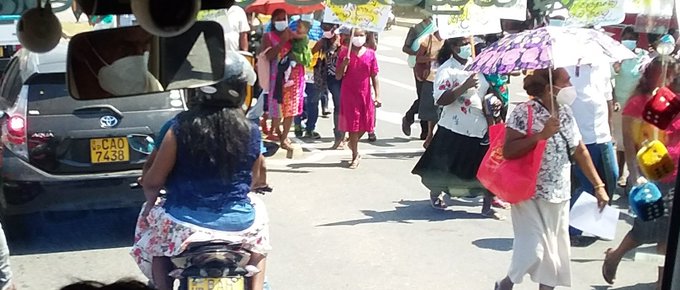Last Updated on April 7, 2022 3:39 pm by INDIAN AWAAZ

WEB DESK
The United States has advised its citizens against travelling to Sri Lanka, pointing to the fuel and medicine shortages, as well as the COVID-19 and terror threats in the Island nation where the worst-ever economic crisis has triggered political unrest.
Sri Lankans have protested for weeks over lengthy power cuts and shortages of gas, food and other basic goods. The public anger has prompted nearly all Cabinet ministers to quit, and scores of lawmakers to leave President Gotabaya Rajapaksa’s government.
“Reconsider travel to Sri Lanka due to COVID-19 and fuel and medicine shortages. Exercise increased caution in Sri Lanka due to terrorism,” the State Department said on Wednesday in its latest travel advisory which has now been placed on Level 3.
The Centre for Disease Control and Prevention (CDC) has issued a Level 3 Travel Health Notice for Sri Lanka due to Coronavirus, indicating a high level of COVID-19 in the country.
“Your risk of contracting COVID-19 and developing severe symptoms may be lower if you are fully vaccinated with an FDA-authorised vaccine. Before planning any international travel, please review the CDC’s specific recommendations for vaccinated and unvaccinated travellers,” it said.
The State Department said Sri Lanka is experiencing shortages of fuel and cooking gas as well as some medicines and essential food items, due to the ongoing economic situation in the country.
There have recently been protests over the economic situation and queues at gas stations, grocery stores, and some pharmacies. Protests have occurred throughout the country and have mostly been peaceful. In some instances, police have used water cannons and tear gas to disperse protesters,” it said.
“There have also been daily planned power outages across the island, as well as some unplanned power outages, as fuel for backup generators is increasingly scarce. Public transportation in some instances has been limited or curtailed. Travellers should monitor local media for updates on the ongoing situation,” said the State Department.
Terrorists may attack with little or no warning, targeting tourist locations, transportation hubs, markets, shopping malls, government facilities, hotels, clubs, restaurants, places of worship, parks, major sporting and cultural events, educational institutions, airports, hospitals, and other public areas, the travel advisory said.
